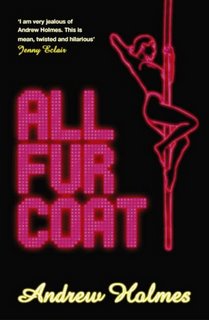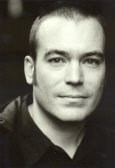
I am proud to know the writers and teachers David Evans and his partner Jenny Newman. Each has made, in my view at least, courageous life choices. Jenny entered and then left a convent, and David Evans went to jail for his beliefs. He used to be a journalist in South Africa during apartheid, and because he protested about what was happening around him spent five years in prison. Now they both live on the Wirral across the Mersey from Liverpool and devote their lives pretty much to writing.
Recently I went to the launch of David Evans's anthology of short stories:
PORTRAIT OF A PLAYBOY AND OTHER STORIES which is published by
HEADLAND Publications.

Here is David with his publisher Gladys Mary Coles who is also a poet and teacher - whose evening classes I attended fanatically for about ten years.

David was introduced by the author Ramsey Campbell, which was entertaining, and we were then treated to a couple of readings which showed the range of the anthology to good effect. I particularly liked David's reading of RACE AGAINST TIME which is the first story in the book and is set in South Africa. It is a short story - only 4 sides long - but gives a strong impression of a place where skin colour is of paramount importance and dictates everything that happens, even the degree of medical care. It is poignant, tense and gripping. The stories are set mainly in South Africa and Merseyside (although places like Florence are featured too) and having sampled David's writing in
A TOUCH OF THE SUN
(reviewed here) I am looking forward very much to reading it soon.

David very kindly gave a set of particularly profound and thoughtful answers to my questions.
CD: Do you have any connection with snails? (or anecdotes, memorable encounters..etc.)
DE: Slugs give me the shivers. I prefer snails – which are attractive in their slow determined way– but they threaten our attempts at gardening. I use snailmail, of course!
CD: What is your proudest moment?
DE: A dfficult question. As we grow older proud moments are diluted by mixed emotions and familiarity with other successes and failures and their cost. Probably my proudest moment was getting my first team cricket blazer at school. This was connected with the hope that it might impress an attractive student at the girls’ school nearby. It didn’t. But the blazer was nearly as pretty. A comparable moment was getting my first short story published in a South African magazine when I was 17. ‘Don’t think you’ve arrived,’ my favourite teacher said. I hadn’t.
CD: Have you ever had a life-changing event - if so what was it?
DE: Going to prison for five years.
CD: What is the saddest thing you’ve ever heard of or seen?
DE: Humans’ continued willingness to torture other humans and animals in the name of survival.
CD: If there was one thing you’d change about yourself what would it be?
DE: My temperament – for one which includes better focus and greater serenity.
CD: What is happiness?
DE: A transient by-product of good writing, good company and good sex.
CD: What is the first thing you do when you get up?
DE: Kill the alarm clock which is on the landing, clean my teeth etc then make a light breakfast to share with partner Jenny in bed.
ABOUT WRITING

CD: .How much of yourself is in your novels and short stories?
DE: Quite a lot, though I’m not trying to write disguised autobiography. I like to draw on what I’ve seen and heard, people I’ve met and places I’ve been to. But these elements are usually only a starting point. For instance a favourite short story is told from the viewpoint of a young Liverpool woman. Writing allows us to escape from the prison of self.
CD: How important has the experience of being in prison been in your life?
DE: :Enormously important. I learnt something of what it means to be subjugated. I also learnt the value of solidarity under oppression. Outside I couldn’t afford to go to university but in prison I was able to study for a degree through correspondence – financed by benevolent organisations. This led to a second degree from Oxford when I came into exile and a subsequent career as a lecturer. My fellow prisoners were intelligent and mainly highly educated people and very supportive. Prison wasn’t a pleasant place to be but it was a privilege to be in that company – a kind of socialist campus. Friendships formed there continue four decades on.
CD: When you visited a local prison in the UK did it help you to relate to the prisoners there, or was their situation very different?
DE: There is a difference about being imprisoned for your political convictions. And my most recent visit was a rather formal affair as I was one of the guest speakers at the opening of a new and impressive education centre. Though I spoke about what study in prison had meant to me and I talked to some of the prisoners briefly afterwards I feel I contributed more years earlier when I did a few sessions on creative writing: it was more intimate and informal and there was certainly rapport. I’ve offered to do something in that line again in future.
CD: What other experiences are important to you and your writing?
DE: The whole experience of apartheid and opposing it. Coming to Britain and working with aspirant writers in inner city areas like Scotland Road and Liverpool 8. The love of some very interesting women. Parenthood. Travel in Europe.
CD: When you have been back to South Africa how did you find it had changed?
DE: The obvious and welcome change is that the political shackles of apartheid have been removed and people of colour have at last won the right to be citizens of their own country with freedom of movement, association, organisation and the rest. Relations between white and black are changing excitingly, particularly among the young. Power relations have shifted, too, though there is still too much poverty and unemployment and I see a need for more redistributive economic policies. There are many problems – AIDS and inequality among them -but a great deal of energy and goodwill exists.
CD: Do you find there are similar injustices in this country? Is there anything you feel you need to fight for here?
DE: There is plenty to be concerned about: sometimes murderous race prejudice, widening inequality, male domestic violence and complicity in two ugly military actions in Afghanistan and Iraq. I’m conscious of doing very little for causes at the moment beyond giving a little money to some.
CD: How do you write? What is your typical writing day?
DE: There isn’t one. I’m erratic. I have ‘hot’ phases when I manage 500 – 1000 words a day or even more, usually starting about mid-morning and (with breaks of course) stopping around six, though I do sometimes write at night. But I have ‘cold’ periods when I’m slow to get myself to my desk and either fritter time away in displacement activities of one kind or another or brood about an idea. Luckily, I enjoy the actual process of writing and feel unhappy, even ill, if I’m away fom it for any length of time. At present I’m working on a sequel to my debut novel and finding it challenging.































